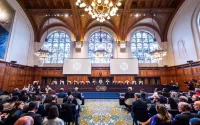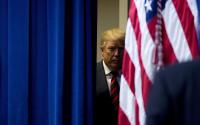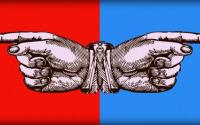First reports emerge of systematic torture that is forcing Afghans to flee - causing a humanitarian disaster far beyond the country's bordersIan Traynor in Gulbakhar, Afghanistan Jason Burke Peshawar, Jonathan Steele Tehran, Ed Vulliamy Washington and Peter Beaumont The Observer, Sunday September 30, 2001They put some cloth in his mouth to keep the noise down. Then they pushed him face down on the floor, with a member of the Taliban sitting on each arm. In a prison cell in the bombed-out ruins of Kabul, Abdul Menan was last week beaten on his bare back with thick electric cable. The punishment was dished out twice a day. Menan lived. He was one of the lucky ones.
Yesterday Menan recounted how, despite being born in Afghanistan and being a former member of the police force, he was subjected to a harrowing ordeal at the hands of the religious zealots who swept to power in 1996 and who were last week orchestrating a reign of terror against suspected opponents of the regime ahead of impending military strikes by America and Britain.
As thousands of Afghans yesterday attempted to flee across the borders into Tajikistan, Pakistan and Iran, the first accounts of how the Taliban are involved in ethnic attacks against their own people began to emerge. The violence being dealt out within the country's closed borders, and the resulting refugee crisis, were yesterday plunging into chaos a huge swath of Central Asia that could have devastating consequences for the rest of the world.
With Iran split over the upcoming attacks on its neighbour to the east by its sworn enemy America, the entire region was yesterday being convulsed by deep-rooted ethnic and tribal rivalries that have left untold numbers dead and injured and thousands more in fear of their life. The way of the gun is becoming the only way to survive.
In the most comprehensive account yet told of the terror and chaos sweeping the region, The Observer last week dispatched correspondents to Iran, Afghanistan, Tajikistan and Pakistan. The reports reveal how the conflict is spilling over borders that exist on maps but are largely controlled by tribal warlords with ancient enemies and shifting alliances. Unseen by the rest of the world, the violence emanating from the epicentre of Kabul, the Afghan capital, is spreading across thousands of miles of treacherous terrain, pitting religions against each other and creating a vast humanitarian crisis.
In Afghanistan, the Tajik ethnic group are bearing the brunt of the violence. The survivors who made it out of Taliban-controlled areas last week gave the first eyewitness details of how the country's rulers are turning on their own people in an attempt to terrify them into fighting and not supplying any succour or support to America, the enemy.
But the Taliban regime was looking increasingly fragile yesterday as large numbers of Afghans refused to obey their orders and, in some instances, came close to outright revolt.
In at least one province the Taliban authorities were forced to temporarily withdraw after local people challenged their rule. In Khost, a strategic city on the eastern border of Afghanistan and critical to any defence of the country, the Taliban governor was forced to leave after local tribesmen refused his orders to join defence militias.
Elsewhere along the Pakistani frontier, local people in Paktia and Paktika provinces have told the Taliban that unless the Arab fighters associated with Osama bin Laden and his al-Qaeda group are withdrawn from their towns and villages they will refuse to obey any of the government's orders. About 50 Arab families have been evicted from their longstanding bases around the eastern city of Sorobi, according to refugees coming from Afghanistan.
'That's as close as you can get to an outright revolt without risking execution,' said one senior opposition leader in Peshawar last week. There have been similar scenes in Ghazni province - far closer to Kabul, the capital, and previously a Taliban stronghold.
The Taliban have been forced to set up roadblocks to prevent Afghans fleeing major cities - in direct contravention of their orders. According to refugees, hundreds of people were yesterday being stopped at one checkpoint set up near Pul-e-Sharqi prison, a grim complex built by east Europeans on the road east of Kabul. Many of those fleeing are trying to escape the press gangs to which the hardline Islamic militia have resorted to fill the ranks of their army.
Mullah Mohamed Omar, the reclusive one-eyed cleric who is the spiritual leader of the Taliban, was so concerned by the growing rebellion that he last week issued an unprecedented threat to any Afghans who disobey the Taliban's orders: they would be treated in the same way that collaborators with the Russians were treated during the Afghan war of resistance in the Eighties when suspects were tortured and staked out in the sunshine with their eyelids sliced off, or castrated and hung from trees.
Western analysts will be watching the growing signs of revolt with interest. For the Americans it could mean that one of the key aims of their 'war on terrorism' could be achieved almost painlessly. If the Taliban regime begins to collapse bin Laden, his al-Qaeda group and the senior commanders of the Taliban will be confined to a shrinking area, probably in the south-east of the country where their support is strongest.
Bin Laden would be forced to move regularly and would be vulnerable to any one of dozens of warlords who joined forces with the Taliban when the movement was dominant but who might find the $25m reward on his head very tempting..
Refugees say that though Kabul is not yet close to revolt, the western city of Herat, which has already rebelled against the Taliban regime twice, is 'on the brink of uprising'.
'They are waiting to see what is happening and which way things will go. If it looks good then the city will rise up,' said one Afghan man who was in daily communication with his family in the city. Reports from Kandahar, the headquarters of the Islamic militia, suggest that there have been several instances of armed resistance to Taliban attempts at forced recruitment in surrounding villages.
In the eastern city of Jalalabad, the Taliban were reported to be losing their grip as they shifted troops to deal with new threats from the Northern Alliance opposition forces and commanders in Kunar province were reported to be unhappy at the disruption the crisis has caused to the lucrative timber trade. They apparently blame their continuing losses on the Taliban's stubborn protection of al-Qaeda.
In Khost last week, local tribal chiefs ordered their tribesmen to obey the Taliban's request for 10,000 men. The tribesmen, who all have guns, turned out armed only with sticks and asked the Taliban for weapons. The governor, Maulana Abdul Rauf Arif, was too unsure of their allegiance to hand any out. Just south of the Panjshir Valley, the mainly Tajik forces and other groups of the Northern Alliance were yesterday waiting for a green light to attack Kabul across the Shomali Plain from the north-east and over the 1,500-feet high Kohe Soofi hills only 10 miles from the city.
To the north, the ethnic Uzbek forces under the brutal warlord General Rashid Dostum are trying to encroach on the Taliban stronghold of Mazar-e-Sharif. In the west the opposition is under General Ishmael Khan. His target is the ancient pro-Iranian city of Herat. And in the centre of the country the Shia Hazara minority which has suffered especially grievously at the hands of the Taliban is looking forward to an orgy of score-settling with its tormentors.
The situation is also tense in Pakistan. In Karachi, 1,500 miles south of Kabul, people yesterday viewed the attack on New York, as unjustifiable and unIslamic. But even if there is evidence against bin Laden few of Pakistan's 130 million Muslims believe military strikes against the Taliban are justified.
'It is right to try and end wrong-doing. But why are Muslims the target for everything?' asked Jalil Ahmed, a 30-year-old pharmacist. Behind him around 4,000 activists from a broad coalition of radical Islamic parties were preparing to burn an effigy of George Bush. They waved placards of their hero. 'Osama Zindabad (long live Osama),' they shouted. 'Crush America! Forward with Jihad.'
Though such sentiments are in the minority in Pakistan, the crisis unfolding in neighbouring Afghanistan has revealed all the faultlines of this deeply troubled state. Since the war against the Soviets flooded the country with refugees, drugs, guns and extremist religious politics, successive governments have, by turn, cynically exploited the resulting instability or tried to tackle it.
The current President, the moderate and secular General Pervez Musharraf, is working hard to face down the extremist Islamic fringe. The country is splitting on ethnic lines too. The Taliban are from the Pashtun tribes who dominate the North West Frontier. There are family links and cultural links between them that are not shared elsewhere in Pakistan.
Yet the North West Frontier is facing the greatest strain. Tens of thousands of refugees have poured across its porous mountainous frontier with Afghanistan. No one knows for certain how many have already reached Pakistan. The UN High Commission for Refugees has said that a million more may be on their way as the cities of Afghanistan empty. Already there are more than two million Afghan refugees who made their home in the cities of the North West Frontier - and Karachi - during the war against the Soviets.
The cost of looking after the refugees will be huge. Pakistan's government last week appealed for £300m to pay for camps for the new arrivals. Little has yet been forthcoming. And despite the US government's waiving of some sanctions against Pakistan - imposed after the nuclear tests of 1998 - and the rescheduling of loans, the crisis has hit the economy badly. Yesterday advertisements appeared on the front of newspapers calling on Musharraf to 'save the textile industry from collapse'. Dozens of major international businesses have now pulled out of Pakistan and the nascent tourist industry has vanished overnight.
With the north, east and south of the region in meltdown, many Afghans were also yesterday trying to flee into Iran to the west, where the ritual cry of 'Death to America' could be heard across the country. Thousands shouted it out on Friday at an officially sanctioned march to the Palestinian embassy on the first anniversary of the intifada. 'Israel commits crimes, and America gives it support,' shouted the demonstrators before burning US and Israeli flags during a rally in front of the embassy.
Two days earlier women in black chadurs, the full-length black coat, and tight-fitting head-dress that has become one of the hall-marks of the Islamic revolution, punched their fists in the air and chanted the slogan after hearing Iran's supreme leader, Ayatollah Ali Khamenei, describe the United States as 'disgusting, incompetent, and insincere'.
The upsurge in anti-American rhetoric brought a brusque end to Western government hopes raised by President Mohammed Khatami's condolence message to the United States and the good reception given to Jack Straw as well as an EU delegation of Foreign Ministers last week. In spite of their pleading Iran has made it clear it will not join the US coalition against terrorism nor condone any attack on Afghanistan.
And despite a fierce opposition to the Taliban one thing unites the tens of thousands of Afghan refugees who live in the remote corner of south-eastern Iran close to the border of their old homeland. They do not want the United States to attack their country.
From the owners of the clothes shops in the central bazaar to the turbaned vendors of melons in the dusty streets there was a constant refrain that foreigners should finally stop interfering in Afghanistan. Even the leaders of the local mujahideen movement which still confronts the Taliban in Afghanistan take the same view. 'If the Americans start bombing the Taliban areas, every Afghan will resist,' says Mohamed Nahim, who commands some 500 armed men in the south-west corner of the Afghan province of Nimruz.
With the connivance of the Iranian government he and his men move freely back and forth across the border in pick-up trucks and four-wheel-drives, acting as traders and merchants when they are in Iran and as armed vigilantes when they visit their kinsmen who still tend vegetable gardens beside the drought-reduced river Hirmand in Afghanistan.
'We don't want American help,' says Abdul Rahman Gorgej, the group's political leader. 'We want help from the United Nations. America should not do anything except with other countries and under the control of the UN. The US may manage to defeat the Taliban, but it will take a long time and very many women and children will be killed.' He also ruled out the use of American special forces, saying it was up to Afghans to handle bin Laden.
Since the crisis started after the attacks on the World Trade Centre in New York, the Iranian government has reinforced the border with extra troops and police. It is desperately trying to stop any new influx of Afghan refugees and, in the hope of diverting the potential flow to Pakistan, insists it will not allow them to cross into Iran under any circumstances.






